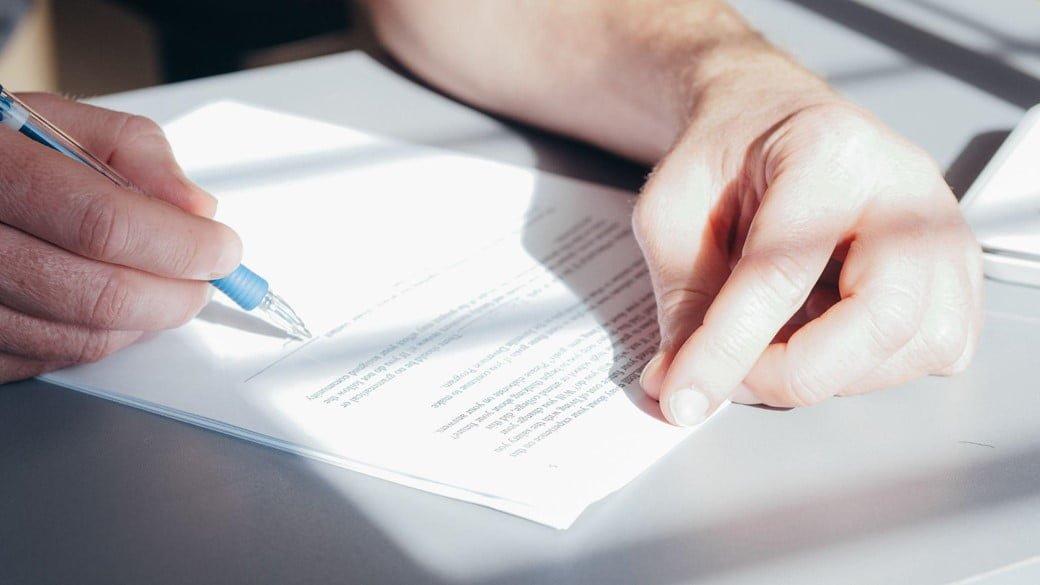
Contrary to popular belief, changing your name in Singapore involves a relatively simple process. All you need is a legal document known as a “Deed Poll” from your lawyer.
A Deed Poll effectively renounces your birth name. It allows you to adopt a new name of your choice, so long as the Deed Poll has been appropriately executed before a lawyer.
1. Why Would You Need To Change Your Name?
There’s no invalid reason to change your name in Singapore unless you have fraudulent reasons for doing so.
For instance, a person may attempt to change their name to escape from debt obligations or in an attempt to mislead authorities. Doing any of these could lead to legal consequences.
However, most people in Singapore apply for a name change for religious purposes. They may want to add an English name for auspiciousness or feng shui. Some people also opt for a name change because they simply tire of their current name.
Whatever your reasons, going through the proper legal channels is vital. Singapore authorities like the Immigration & Checkpoints Authority (ICA) will only recognise name changes if a Deed Poll supports them. Deed polls are required before they update your records and process your name change.
2. What Part Of Your Name Can Your Change?
Singapore is one of the most diverse cities, consisting of people from different backgrounds – Chinese, Indian, Malay, etc. This diversity also reflects in the many rules regarding name changes.
Below are the many different ways one can have their name changed in Singapore:
- You can include, remove, or alter Chinese or Tamil characters in your name;
- You can include, remove, or alter any punctuations in your name (e.g. Wo Mei-Han);
- You can include, remove, or alter your Western/English/Christian name. (You can add an English name even if you aren’t baptised as a Christian);
- You can include, remove, or alter your Hanyu Pinyin name (e.g. Zhang Xin Yi);
- You can change the order by which your name appears (e.g. Donald Chow instead of Chow Yun-Fat Donald);
- If your parents accidentally misspelt your name on your original birth certificate, you can correct such mistakes through a name change;
- You have recently gotten married and want to include your married name;
- You have recently converted to another religion and want to include religious or Baptismal names.
Remember that a Singapore Deed Poll can only be used to modify your name. You may not change other particulars, such as race, religion or date of birth. Anyone who wishes to will need to contact the ICA for more information.
3. How Many Times Are You Allowed To Change Your Name In Singapore?
There is no limit on the number of times you want to change your name. As long as you abide by legal regulations on name changes and the ICA duly recognises it.
4. How Do You Change Your Name Through A Deed Poll?

Anyone planning to change their name in Singapore must engage with a lawyer who will be responsible for drafting the document. All you have to do is confirm the Deed Poll’s particulars and sign it before the said lawyer.
Tembusu Law is a firm in Singapore which offers its assistance to people who want a name change. We may require you to duly fill out a Deed Poll submission form.
The submission form includes every detail we need regarding your name change. Once you’ve finalised this legal document, you will be invited to the law firm to sign the Deed Poll.
You’ll need to send the Deed Poll to the ICA either in person or online after signing it. This is so that your name change will be accurately reflected in their system.
Online submissions can be made via the ICA website. But if you want to send the Deed Poll to the ICA in person, you may visit the ICA Kallang address at 10 Kallang Rd, Singapore 208718.
You may need to call other institutions or organisations to ensure your name change is properly reflected in all necessary documents.
You may need to inform the following after a name change:
- University or school
- Insurance agency
- Phone company
- Internet Service Provider
- Insurance agency
- Creditor/s
- IRAS (Inland Revenue Authority of Singapore) – For example, you may need to update your bank details, transcript of records, certifications, driver’s licence, Singpass, etc.
The purpose of informing the above institutions is so that your details appear accurate in important documents, such as credit card billings, bank deposit slips, driver’s licence, Singpass, etc.
5. How Long Does A Name Change Take To Process?
Changing your name in Singapore can take several days to process. Five minutes will be allotted to completing and signing the Deed Poll form, 10 to 15 minutes to review the details, and a few days before the ICA will issue you a new NRIC (National Registration Identity Card).
6. How Do I Update My Documents With The Name Change?

You will need to get a new passport after getting your new NRIC. To do so, you’ll need to visit the Singapore Embassy or ICA with all relevant documentation. The embassy will process your new NRIC in four to six weeks.
However, there are certain documents you can’t change after a Deed Poll, namely your birth certificate and marriage certificate.
7. Can I Change My Name In Singapore If I’m Under 21 Years Old?
If you’re a minor or under 21, you will still need a Deed Poll to process your name change. But both your parents or legal guardian must also sign the document, except in the following cases:
- The other parent is incapacitated.
- The parents are divorced.
- The other parent is estranged from the family and can no longer be contacted for several reasons.
- The other parent is deceased (You will need to present the ICA with a death certificate as proof).
8. Can I Change My Name Into Anything?
The ICA may reject certain name changes, especially if they are deemed offensive.
They may also reject names too similar to famous politicians or celebrities or names which include self-proclaimed honorary titles such as “Queen”, “Duchess”, “Sir”, “Duke”, etc.
Names with unidentifiable or made-up Chinese characters may also be rejected, especially if the registrar cannot find them in a Chinese dictionary.
9. Can Foreign Singapore Residents Change Their Name?

A lawyer in Singapore may also process the name change for a foreign Singapore resident. However, the name change won’t necessarily be recognised by the originating country’s laws and regulations.
If you’re a foreigner planning to change your name, it’s best to check first with your home country’s embassy or lawyers. This is to ensure they recognise your Deed Poll in Singapore.
If they reject the Deed Poll, you may need to call on a lawyer in your home country to facilitate changing your name for foreign-issued documents.
Conclusion About The Deed Poll In Singapore
A Singapore Deed Poll is required before you can legally change your name. The process may seem overwhelming, but it’s relatively simple with the help of a divorce lawyer in Singapore.
If you need more assistance, contact our law firm in Singapore. Tembusu Law dedicates itself to providing personalised legal services for our clients, including those seeking a divorce lawyer in Singapore or criminal lawyers in Singapore.
Get your free 30-minute consultation, and we’ll work towards getting your Deed Poll application and other legal matters processed.
We also specialise in other legal services, such as Corporate Law, Litigation, Contested/Uncontested Divorce, Criminal Law, Bankruptcy Law, Mitigation Plea, Deed of Separation, Personal Protection Order, etc.
Frequently Asked Questions About The Deed Poll In Singapore
What Happens To My Child’s Deed Poll If They Don’t Yet Have An NRIC?
Your child’s name won’t immediately be changed in official records, even after executing a Deed Poll. As a parent, you may need to change their child’s name through the following:
- Apply for a new passport for the child, wherein the new name will be automatically reflected in ICA’s records;
- Update the child’s birth certificate by visiting the Registry of Birth. If the child is above one year old, you cannot change the name as it appears on their birth certificate. You can only do so for their ICA records.
Children with an NRIC or Singapore Identity Card (IC) should be able to change their name (with the assistance of both parents or legal guardian/s) by visiting the ICA within 28 days since the Deed Poll was executed.
Can A Minor Execute A Deed Poll In Singapore On Their Own?
At least one parent must be present to execute the Deed Poll of a minor. They must both sign the Deed Poll to prevent legal issues and other complications.
What Happens After I’ve Applied For A Deed Poll?
Adults with an IC should change the name on their IC/NRIC at the ICA building within 28 days after executing the Deed Poll. Parents must accompany minors to do the same.
Can I Replace My Deed Poll If I Lose It?
You can consult with our law firm in Singapore if you lose your Deed Poll. We will happily process another one for you at an additional fee.
What Should I Bring When I Sign The Deed Poll?
Prepare the following documents in preparation for your signing of the Deed Poll:
- (For those over 21 years of age) – Passport, NRIC, NS Green IC, or Singapore Blue Identity Card
- (For minors/those under 21 years of age) – You must be accompanied by your parents with your NRIC/Passport, Original Birth Certificate or certified true copy of the English translated version (for foreign birth certificates)